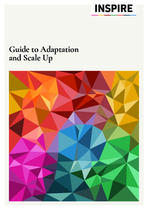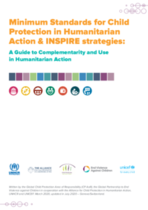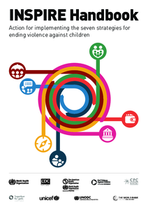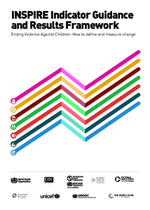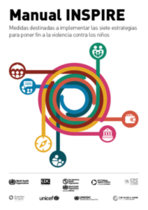The members of the INSPIRE Community of Practice are individual representatives actively implementing or interested in implementing INSPIRE-related programs to end violence against children from the following constituencies: Academia, Bi- and Multi-lateral agencies, Consortia/Partnerships, CSOs/NGOs, Government bodies and Philanthropic Foundations. Due to overwhelming interest in the membership, there is no size limit.
INSPIRE: Seven Strategies for ending Violence Against Children is an evidence-based technical package to support countries in their efforts to prevent and respond to violence against children aged 0-17 years. The package includes the core document describing what the INSPIRE strategies and interventions are; an implementation handbook that provides details on how to implement the interventions, and a set of indicators to measure the uptake of INSPIRE and its impact on levels of violence against children. The strategies will advance efforts to achieve Sustainable Development Goal target 16.2 to end all forms of violence against children.
INSPIRE Working Group and Community of Practice is chaired by the World Health Organization (WHO) and the Care and Protection of Children (CPC) Learning Network at Columbia University and managed by a small Secretariat that also includes the Global Partnership to End Violence Against Children, Centres for Disease Control and Prevention (CDC) and UNICEF. The Secretariat convenes meetings and the Coordinator supports overall objectives of the group.
Where they operate
Organization Type
Main Areas of Work
What They Do
The INSPIRE Implementation Working Group serves as the voice and decision-making arm of the community of practice and provides leadership and strategic guidance in the implementation of INSPIRE-related interventions.
Organization Resources
INSPIRING Ways to End Violence Against Children's new series of podcast episodes explore organisations’ efforts to protect children – and adapt to challenges – during COVID-19.
This Guide was created as a resource for the adaptation and scale up of a country's unique action plan to address violence against children.
The purpose of this note is to clarify the linkages and complementarity between INSPIRE seven strategies for ending violence against children and the 2019 Edition of the Minimum Standards for Child Protection in Humanitarian Action (‘2019 CPMS’); and to provide some practical guidance on how to use INSPIRE and the 2019 CPMS in conjunction for preventing and responding to violence against children in humanitarian settings.
Is it actually possible to end violence against children? This new podcast series from the End Violence Partnership explores the answer to that question by talking to those on the frontlines – the experts, researchers and leaders that have dedicated their lives to keeping children safe.
This video provides a short summary of the INSPIRE objective and goals, strategies included, measures to be implemented and good practices develop across the globe.
This short webinar delivered by Dr Alex Butchart, WHO, and Ms Sabine Rakotomalala, Global Partnership to End Violence Against Children, is an introduction to the evidence-based strategies and interventions gathered in INSPIRE, a technical package to reduce and prevent violence against children.
INSPIRE Handbook: Action for implementing the seven strategies (hereafter referred to as the INSPIRE Handbook) explains in detail how to choose and implement interventions that will fit your needs and context.
The INSPIRE Indicator Guidance and Results Framework is designed to help governments and non-governmental organizations monitor progress and track change over time as they implement INSPIRE strategies to prevent and respond to violence against children.
El presente manual proporciona a todos quienes están comprometidos con la tarea de poner fin a la violencia contra los niños la mejor información posible sobre la manera de ejecutar las estrategias INSPIRE.
This presentation provides an overview of the implementation of the INSPIRE child protection framework in Uganda.

